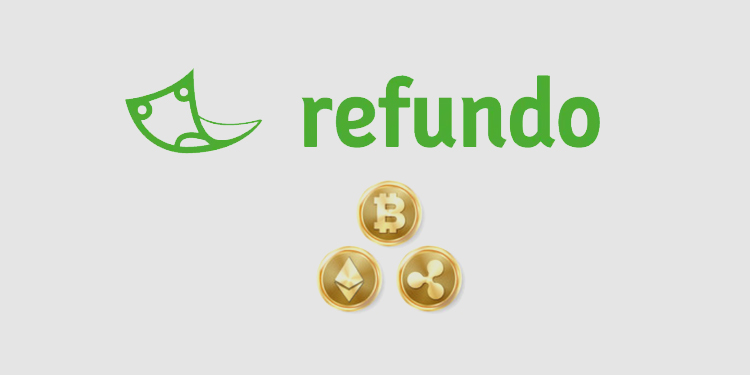Refundo, a provider of tax-related financial products and services, is once again making federal and state tax refunds available in cryptocurrency. Last year, Refundo introduced CoinRT, a service that allowed taxpayers to receive their federal and state tax refunds in Bitcoin (BTC). Beginning today, Refundo is introducing support for Bitcoin Cash (BCH), Ethereum (ETC), and Ripple (XRP) as additional cryptocurrency options for receiving tax refunds.
How It Works
Taxpayers who create a Refundo CoinRT account are each assigned a unique routing and account number to input on their tax return. They are also required to provide all necessary background details for Know-Your-Customer regulations as well as their BTC, BCH, ETH, or XRP wallet address. Once the IRS or state direct deposits the tax refund into this unique account, Refundo processes the refund and the cryptocurrency is deposited into the taxpayers’ designated wallet.
“We love new technology and we’re always looking for opportunities to help our customers get access to their tax refund in a seamless manner and however they see fit. When we launched support for Bitcoin last year, we knew we were just getting started. Cryptocurrencies are increasingly faster, lower cost, and fit the need of the underbanked. We are pleased to be able to support BCH, ETC, and XRP and look forward to adding other cryptocurrencies in the near future.”
– Roger Chinchilla, CEO at Refundo
Since inception, Refundo has prided itself on being a champion for the low-income taxpayer. Many low-income taxpayers are subject to high fees and misleading terms when shopping for financial services. For a flat fee of $34.95, taxpayers, whether they are filing their tax return themselves online, or visiting a tax professional, can have their refund issued in cryptocurrency. In doing so, they avoid waiting weeks for a tax refund check in the mail, paying check-cashing fees, or dealing with a traditional bank.
